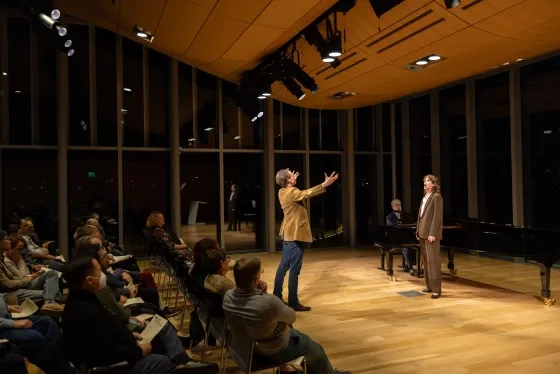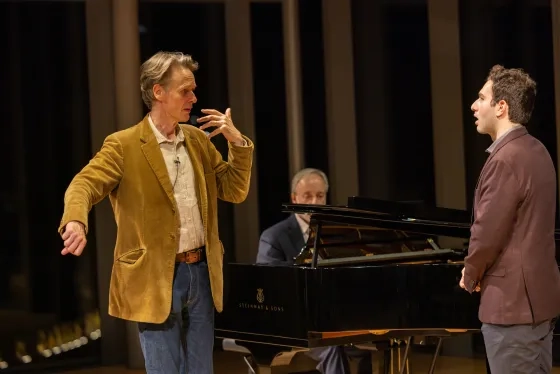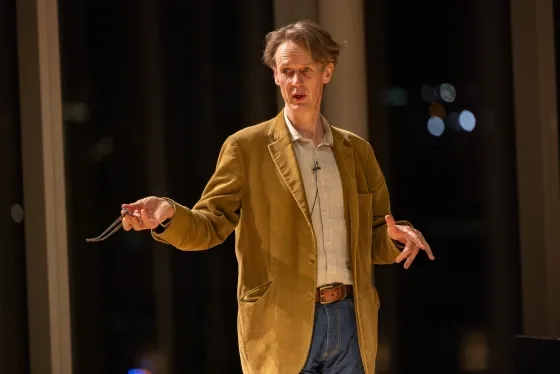Renowned Tenor Ian Bostridge Visits SFCM for Masterclass
News StoryBostridge is surely the only visiting artist at SFCM who's earned a doctorate studying witchcraft in England in the 15th and 16th centuries.
British tenor Ian Bostridge has one of the more unusual paths to professional singing success: He only began singing professionally at the age of 27, after having a distinguished career as a historical scholar focusing on a specific period of witchcraft in England.
Eventually, after attempting to balance his two skill sets, Bostridge landed firmly on the side of singing; honed in on his love of German lieder, and has amassed a career that includes 15 GRAMMY nominations (with three wins) and an appointment as Commander of the Most Excellent Order of the British Empire (a British order of Chivalry awarded to those in the arts and non-governmental public service). He is also currently represented by both Opus 3 Artists and Askonas Holt, the two artist-management companies part of SFCM's alliance; he has also recorded Schubert extensively for PENTATONE, the record label also a part of the SFCM family of companies.
"Working with the acclaimed Ian Bostridge was an absolute pleasure and honor," student Joseph Calzada said. "He is a scholar, and he strives for some of the best artistry and interpretations that I have ever seen."
Calzada is in his fourth year of studying Franz Schubert's Winterreise song cycle, and, having done work on Bostridge's interpretations of the material especially, found the experience memorable, adding, "being able to acquire knowledge and skill from him was a gift. "
"While we were backstage, I asked him how he delivered such a remarkable interpretation of this work," Calzada continued. "He told me that he does not sing, he conveys the message through the words and the setting. This really sat with me, because this is a story, no different from opera. It is merely a story of one’s journey and his own personal battles."
Bostridge says that his approach to masterclasses is a delicate one, because with such a short time with each student, it can be difficult to address what he sees as problems with their technique without getting in the way of what their regular teacher is working on with them.
And because singing is such a highly personalized art, he emphasizes not everyone's approach will be the same. "Having a technique that works for you doesn't mean it has to be the same technique as everybody or that you have to make the same sound as everybody. But it has to work expressively and be sustainable. That's the other big thing about technique: It's about having an approach that will carry over decades of singing intensely if they're gonna have a singing career."
Asked for his advice to younger singers, Bostridge says, "Listen to lots of other singers, and don't be afraid of imitation. Work a lot on language—especially if you've come from a language group that isn't terrifically close to German, then you're gonna have to work quite hard to get the sounds of those words in your mouth."
"The biggest lesson I learned from his class is to tell the story," Calzada says. "While studying singing, it becomes such a pivotal part of our performance. As time goes on, the ability to deliver a strong performance and captivate the audience is balanced by the strong narrative and the beautiful colors of one’s voice. Ian explained to me that you cannot have one without the other."
This advice makes sense, because despite his scholarly work, Bostridge doesn't see music as particularly otherworldly. "I find music intensely human. If you feel you are carried away by the music—that sort of cliche of being 'sung by the song'— to me, that's having a very human connection with the music and transferring it to the audience. And that always seems to be the most important thing to me."


